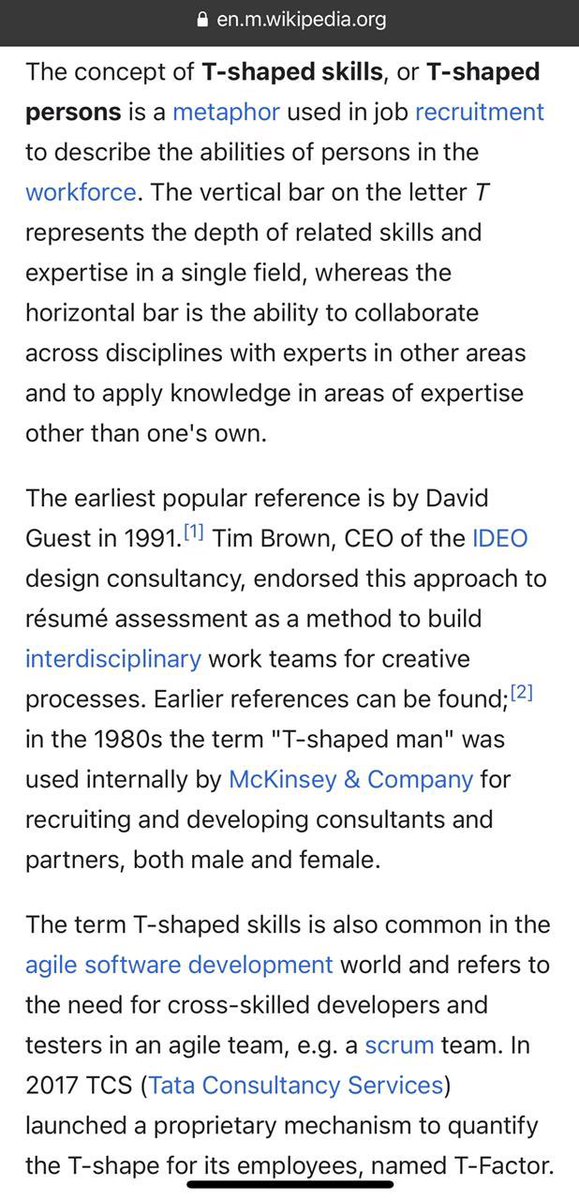With the recent advertisement by UPSC ( https://upsc.gov.in/sites/default/files/Advt-No-51-2021-Engl.pdf) for lateral recruitment of specialists in Government of India (3 Joint Secretary and 37 Director level pots), the conversations around generalists v specialists have got revived.
However, it is a lazy fallacy to think in binary terms. Private sector see has been using the concept of T-shaped skills for a long time now, joining the depth of related skills and expertise in a single field, with ability to collaborate and apply knowledge in other areas.
Most people would have heard of the 10,000-hour rule (popularized by Malcolm Gladwell in Outliers) to gain mastery in a subject. Those 10K hours correspond to 10 years of productive life of a professional.
However, it is not merely practice but deliberate practice, involving moving out of the comfort zone and seeking specific feedback, that leads to constant improvement. More in this episode @Freakonomics https://freakonomics.com/podcast/peak/
A generalist can not spend that kind of time in one area; and the exaltation he has already received early in the career (for cracking an exam!) will keep him away from knowledge and closer to power, limiting learning opportunities.

 Read on Twitter
Read on Twitter


